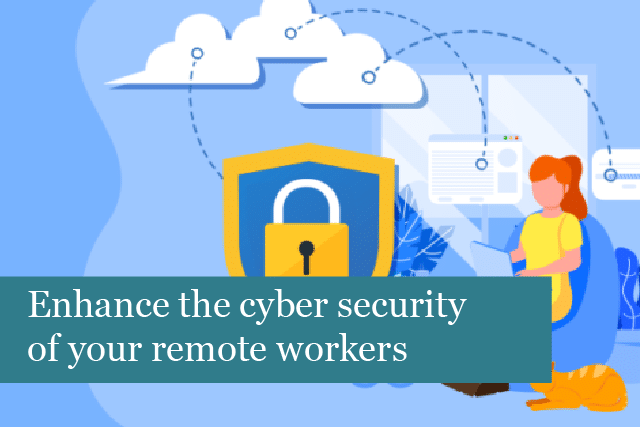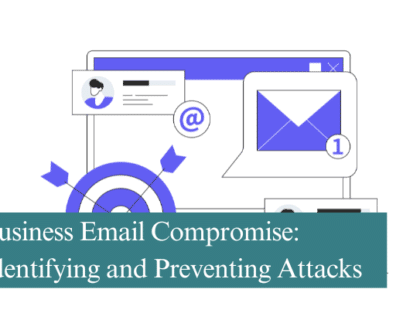
With the increase in the number of remote workers, security has become an increasingly difficult challenge for businesses around the world. Companies are struggling with how to keep employees productive, while ensuring all business data is safe and secure.
The Challenges of Remote Employees
It was once as simple as ensuring that employees working remotely used a VPN (virtual private network) to stay productive and keep company data safe. However, VPNs are increasingly becoming vulnerable to malicious attacks from cyber criminals.
Another common issue is the security of home WiFi networks. These are a challenge because they simply don’t offer the same level of security as a company’s inhouse IT network. Many people don’t protect their home networks with a password, or they may use simple passwords that are easy to figure out. Modems and routers used on home networks are also not always secure, making it easy for criminals to hack and install malicious software. As a result, employees are more exposed to cyber attacks when working from home, which also puts business data in danger.
Another challenge that comes with employees working remotely is the IoT. IoT has become increasingly popular in homes, giving devices of all types the ability to connect to the Internet. As more home devices connect to the Internet, there’s a higher risk of cyberattacks through WiFi networks and more.
These are the widespread security issues all companies face with more and more employees working from home. So, how can a business go about securing its remote workers and company data?
Three Steps to Increase Business Security
There are three basic steps that can work together to increase security of your company’s remote workers:
1). Centralised data: the first step to keeping the company and all data security is through the use of a centralised data storage system. This can be done through various solutions, such as Microsoft’s Office 365 service for smaller companies. For larger companies, a hosted data centre may be the best option.
The goal is to keep all company data stored in a central location, which is highly secure and difficult for cyber criminals to access.
2). Policy: it all starts with a clear, concise company policy on best practices for keeping the company and remote workers secure. Guidance on security needs to be written. This way, everyone is on the same page on best practices and knows exactly what to do if they experience a security breech.
Policy can include the requirement that all remote employees must connect to the company’s VPN, especially when using a public WiFi connection. In addition, all devices can be required to be updated and patched, and employees must use the latest operating system. The policy can also stipulate that all data and documents are securely backed up.
Company policies should also include a rule that no company data is be stored on personal devices or portable media. Data must be kept secure on company-provided devices only. Business data should also not be stored on any cloud storage services, other than those used by the company.
3). Technology: can work to increase a company and its remote workers’ security. For instance, using a company VPN is beneficial because it allows remote workers to securely connect to the company’s IT network. All data is received and transmitted with encryption, to increase overall security.
Password managers are another highly useful tool to securely store company login details or generate new ones. A stolen password and a username are all a criminal needs to access company data. It’s best to choose a password manager that will be used by all employees, rather than allowing employees to use their own.
Firewalls can also be an effective method to keep remote employees protectd when working from home or other locations. This can be set up by the IT department, or employees can be instructed to use the firewall built into their devices. Both Microsoft and Apple include firewall protection on their devices.
And remember that importance of antivirus software on all devices. Ensure remote workers are instructed to install and keep their antivirus programs up to date to improve their security.
Additional security measures can include the use of multifactor authentication (MFA), as well as setting privileges for which employees have permission to access certain documents, data, and more.
4). Communication and training: training employees on the dangers of cyberattacks and what to watch for are also essential for remote workers. They are the first line of security when it comes to keeping a business secure.
Training is crucial because cyber criminals continue to devise newer methods to lure individuals to click on links, download document, and more.
For those remote employees who are using legacy apps and services, implementation of a virtual desktop environment can increase their security.
5). Company communication channels only: the use of personal email services or other types of communication channels can also put company data in danger. Remote workers must be advised not to use personal email accounts (unless previously approved by the company) to send or receive business information.
This includes the use of company email only, along with the adoption of additional communication tools such as Microsoft Teams, Slack and more. These communication tools provide the necessary channels to maintain contact with remote team members, as well as enhanced security measures to keep business data safe.
6). Device loss protocols: a lost device can expose company data to criminals. That’s a fact. What happens if a remote worker has their device stolen, or they misplace it? Your company needs to have a policy that covers device loss.
The information included in the policy needs to include steps on who to report the loss to, remote wiping (who does this and how), as well as how the device will be replaced. Things happen, including theft and accidentally loss of devices. Planning ahead and having a device loss protocol in place lowers the chances company data falls into the wrong hands.
Keeping remote workers and company data secure takes some planning. Having policies in place, along with educating employees can go a long way to keeping your company secure. Using these guidelines, your business will have a better chance of keeping valuable information out of the hands of cyber criminals.
Recommended Posts

Are you making the most of your Microsoft 365 licensing?
4th July 2025


